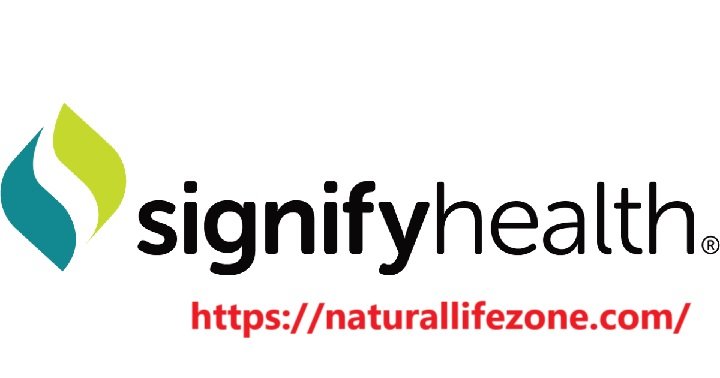IVIM Health: A Comprehensive Guide
 IVIM Health
IVIM Health
What is IVIM Health?
IVIM Health refers to a revolutionary concept in healthcare that focuses on the integration of various medical services, leveraging cutting-edge technology and personalized patient care. This holistic approach seeks to enhance the overall health outcomes by combining traditional and modern healthcare practices. By embracing a patient-centered model, IVIM Health promotes preventive care, timely interventions, and the use of data analytics to optimize treatment strategies.
The Philosophy Behind IVIM Health
At the core of IVIM Health is the belief that healthcare should not be a one-size-fits-all solution. Instead, it emphasizes personalization and adaptability in healthcare delivery. This philosophy encompasses several key principles:
- Patient-Centric Care: Placing the patient at the forefront of healthcare decisions, ensuring that their needs and preferences are considered in treatment plans.
- Integration of Services: Bringing together various medical disciplines and specialties to provide comprehensive care that addresses all aspects of a patient’s health.
- Technological Integration: Utilizing the latest advancements in medical technology, such as telemedicine, electronic health records, and data analytics, to enhance patient care and streamline processes.
Key Components of IVIM Health
1. Preventive Care
One of the most significant aspects of IVIM Health is its emphasis on preventive care. By focusing on early detection and risk assessment, healthcare providers can identify potential health issues before they escalate into more severe conditions. Preventive measures include:
- Routine screenings and check-ups
- Vaccination programs
- Lifestyle counseling and education
2. Personalized Treatment Plans
IVIM Health advocates for tailored treatment plans that align with individual patient needs. This approach considers:
- Medical history
- Genetic predispositions
- Lifestyle factors
By customizing treatment protocols, healthcare providers can improve effectiveness and patient adherence, leading to better health outcomes.
3. Telemedicine and Remote Monitoring
The incorporation of telemedicine in IVIM Health has transformed patient care by providing accessibility and convenience. Through virtual consultations and remote monitoring devices, patients can receive care from the comfort of their homes. This technology offers several advantages:
- Reduced travel time and associated costs
- Increased patient engagement and satisfaction
- Continuous monitoring of chronic conditions
4. Data-Driven Insights
IVIM Health leverages data analytics to enhance healthcare delivery. By analyzing patient data, healthcare providers can identify trends, track outcomes, and make informed decisions. Key benefits include:
- Enhanced accuracy in diagnoses
- Improved treatment efficacy
- Streamlined resource allocation
The Role of Technology in IVIM Health
Technology plays a pivotal role in the advancement of Health. Innovations such as artificial intelligence (AI), machine learning, and health informatics contribute significantly to improving patient care. These technologies enable:
- Advanced diagnostics through predictive analytics
- Real-time health tracking and reporting
- Efficient management of health records and data sharing
Benefits of IVIM Health
The implementation of IVIM Health offers numerous benefits for both patients and healthcare providers. Some of the most notable advantages include:
- Improved Health Outcomes: By focusing on prevention and personalized care, patients experience better health outcomes and higher satisfaction rates.
- Cost-Effectiveness: Preventive care and early intervention can significantly reduce healthcare costs by minimizing the need for expensive treatments and hospitalizations.
- Enhanced Patient Engagement: With a patient-centric approach, individuals feel more involved in their healthcare decisions, fostering a sense of ownership over their health.
Challenges in Implementing Health
While the benefits of IVI Health are compelling, there are challenges to its implementation:
- Data Privacy Concerns: The use of technology and data analytics raises questions about the security and privacy of patient information.
- Integration of Services: Coordinating various healthcare services can be complex, requiring collaboration among multiple stakeholders.
- Access to Technology: Not all patients have equal access to the technologies that facilitate Health, potentially creating disparities in care.
The Future of IVIM Health
The future of IVIM Health looks promising as advancements in technology and a growing emphasis on patient-centered care reshape the healthcare landscape. Key trends to watch for include:
- Expansion of Telehealth Services: The continued growth of telemedicine will further enhance accessibility and convenience for patients.
- Increased Focus on Mental Health: As awareness of mental health issues rises, health will likely integrate mental health services into holistic care models.
- Advancements in Genomics: The integration of genomic data into patient care will enable more personalized treatment strategies, improving health outcomes.
Conclusion
In conclusion, IVIM Health represents a significant shift in the healthcare paradigm, emphasizing personalization, integration, and technological innovation. By adopting this approach, healthcare providers can enhance patient care, improve outcomes, and create a more sustainable healthcare system. As we look to the future, the continued evolution of Health will play a crucial role in shaping the next generation of healthcare delivery.
Read More: King Charles Health




